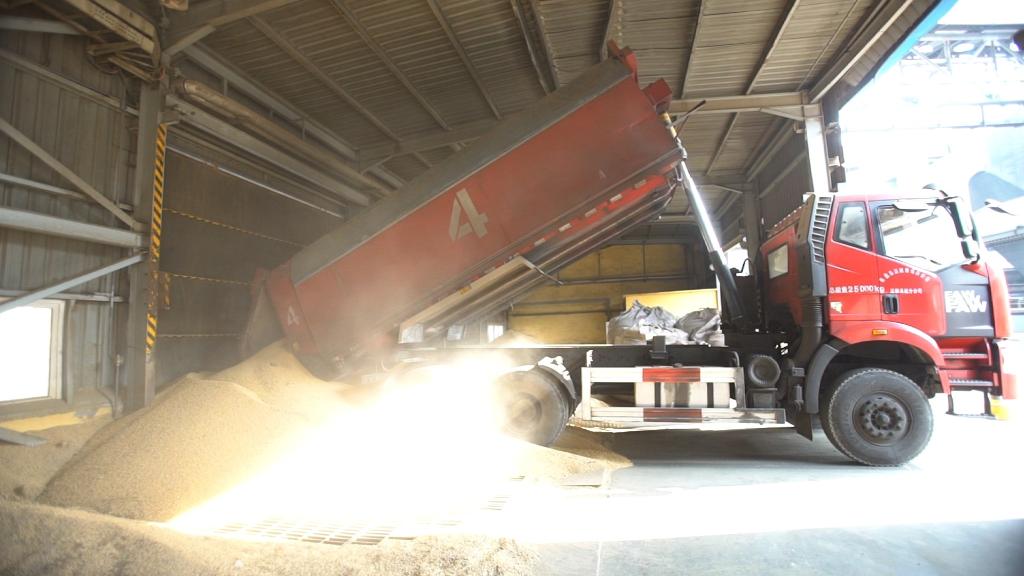
Main Street and Wall Street are bracing as the United States prepares to levy more tariffs on China.
President Trump on Thursday directed the US trade representative to level tariffs on about $50 billion worth of Chinese imports.
What's expected to happen
In the next 15 days, US Trade Representative Robert Lighthizer will publish a list of products that his team intends to hit with tariffs. It's not clear how high the individual tariffs will be.
The United States also plans to impose new investment restrictions and take action against China at the World Trade Organization.
Related: Trade war would wipe out the gains from tax cuts, Penn analysis says
Why it matters
1. The Trump administration is turning its tough talk on trade into action this year.
2. Chinese officials are warning that they will retaliate with tariffs on US exports to China. They haven't been specific yet, though.
3. Investors, economists and policymakers are worried about a China-US trade war that could embroil the global economy.
4. Americans buy lots of Chinese-made goods. Prices will likely go up for shoppers. How much is anyone's guess.
So there's a lot at stake, from Wall Street to your local Walmart.
Trump administration officials say fears of a trade war are overblown. And the tariffs are essentially delivering on a campaign promise: Trump told voters he would get tough on China, accusing it of stealing US jobs.
The $50 billion question is whether Trump's tariffs, and the likely Chinese retaliation, will create or kill more American jobs.
What does China have to say about this?
China sharply warned Trump again on Tuesday.
"A trade war does no good to anyone. There is no winner," China's Premier Li Keqiang said at a press conference in Beijing.
China can push back on the United States. For example, it is one of the biggest buyers of US crops, including soybeans or sorghum. China could put a tariff on those, or decide to buy more soy from places like Brazil and Argentina.
China is also the biggest creditor of the United States: It owns more US government bonds than any other country. And it recently cut some of its US debt holdings, though investors don't currently expect China to immediately dump its US debt.
How we got here
Related: Boeing would be on the front lines of a US-China trade war
In August, US Trade Representative Robert Lighthizer launched an investigation into Chinese theft of US intellectual property, including software, cell phone apps and technology patents.
The US economy is driven by businesses that provide services like technology companies. So China's theft of intellectual property hits at a real strength in the US economy.
The United States focused on four allegations by American companies against China. The companies allege:
1. Chinese firms force them into partnerships, then steal their technology and eventually end the joint venture.
2. Chinese companies are using government funds to steal American tech secrets and innovation.
3. China uses "cyber intrusions" into US commercial networks to spy on US commerce.
4. American companies operating in China don't have the same property rights that Chinese firms do.
The Trump administration said Thursday it found ample evidence that China is guilty of each accusation.
Trump invoked a rarely used 1974 trade law to justify the case. President Reagan used the law 49 times during his administration, but it gradually fell out of practice after the World Trade Organization was created in 1995. It's one of Trump's many tools to hit other countries with tariffs without congressional approval.
In this particular case, trade experts widely agree with the Trump administration that China has cheated and stolen, and that it should pay a price. The administration's diagnosis is correct, economists say. The remedy is where people differ.
— CNN's Steven Jiang and Tim Schwarz contributed reporting from Beijing. Jeremy Diamond contributed reporting from Washington.
— Correction: An earlier version of this story incorrectly said that Ronald Reagan was the last president to invoke the Trade Act of 1974. It was last used by President Barack Obama in 2010, although President Reagan was most famous for invoking it.


